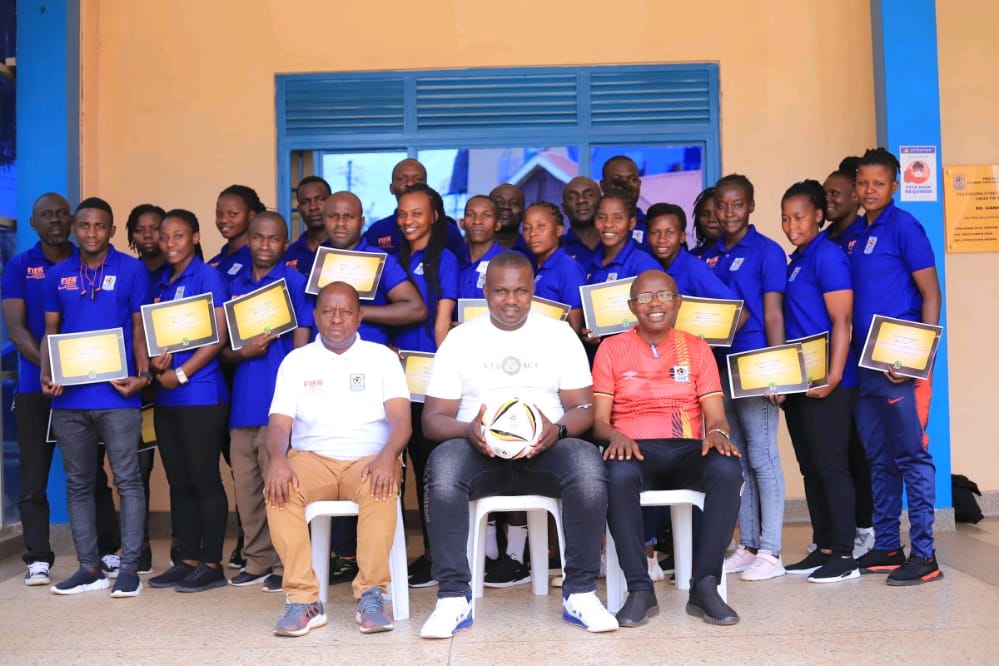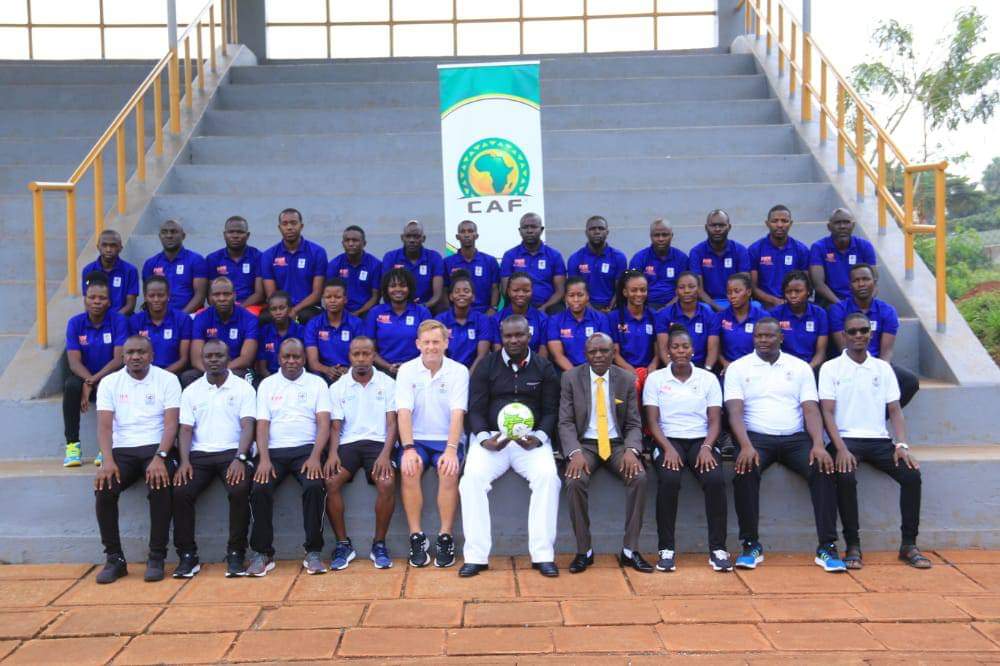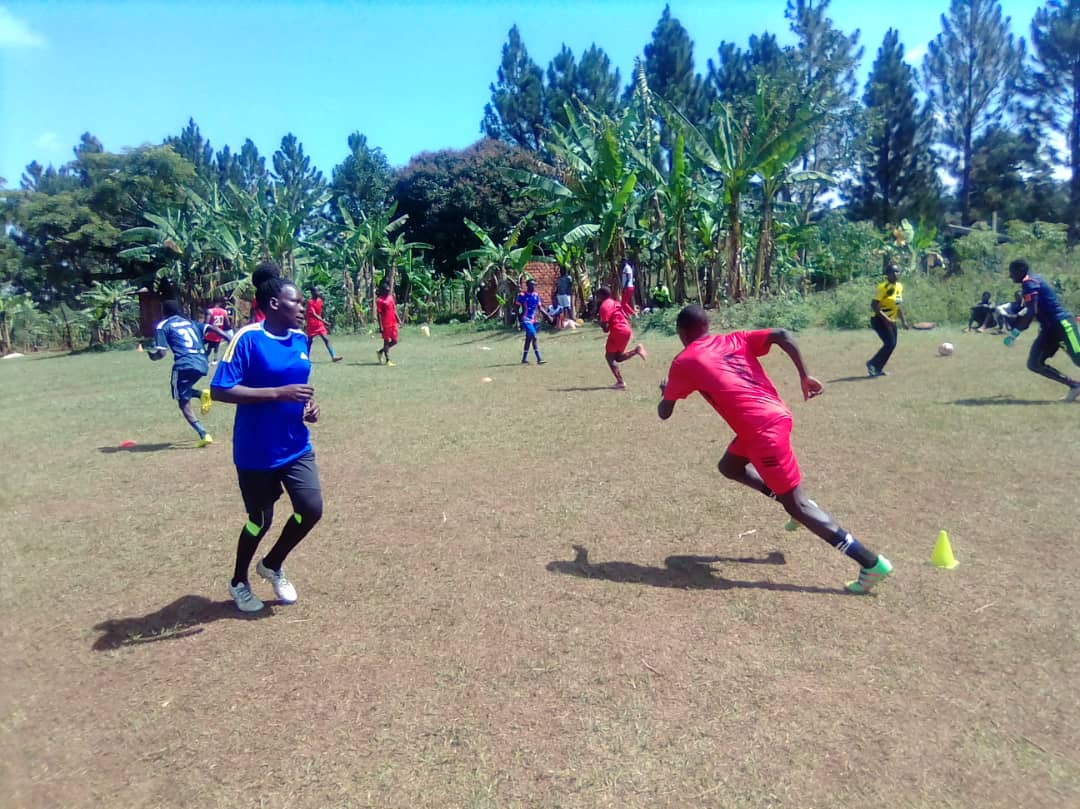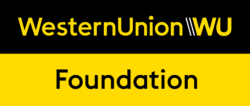October 24, 2022 – This summer, WPDI was delighted to team up with the Federation of Uganda Football Association (FUFA) and the Federation of International Football Association (FIFA) to organize a CAF (Confederation of African Football) ‘C’ coaching course for coaches in women’s football. For WPDI, this training was a unique opportunity to expand the skillset of the coaches and trainers who implement our Peace Through Sports program, which aims to build on sports to teach values of respect, tolerance, and gender equality in conflict- and violence-affected contexts. The program is especially relevant in refugee settlements such as the Kiryandongo Refugee Settlement where the FIFA/FUFA training took place, providing an opportunity for refugees to participate in meaningful and exciting activities, encouraging harmony between the refugees and the host community.

The coaching course was designed to equip the coaches in women’s football with the current trends in the game and enable them to execute their roles as coaches at their different clubs and their local communities. The 29 participants (15 males, 14 females) were drawn from clubs and academies found in the different regions of the country. The training program took 120 hours and equipped the coaches with knowledge and skills that they can now use to launch football development programs.
The training process involved both theoretical and practical sessions. During classroom sessions, topics such as the rules of the game, player nutrition, communication skills, use of resources, match analysis, the planning of training sessions, basic sports medicine, and developmental stages of the player were taught comprehensively. The theory sessions aimed to equip the coaches with special player management skills and direct guidance for effective game management.

During the practical session, topics covered included basic endurance, techniques for passing the ball, team organization, the principle of mobility, crossing and finishing, wing play, goal keeping, coordination, and coaching small-sided games. The practical aspects of the training program provided the coaches with hands-on practice that they can replicate once they are back at their respective clubs.
Participants expressed their delight at being given the opportunity to improve their coaching skills. Auma Molly, a 33-year-old coach said ‘I am so happy to express my feeling to WPDI for giving me the opportunity to go and do the CAF ‘C’ diploma coaching course which was aimed at equipping the coaches in women’s football with the current trends in the game and enable me to execute our roles as a coach in women football. I am so glad to say the course has equipped me with more knowledge on technical, tactical, mental, psychological and physical brilliant soccer ideas, with this I hope to promote development of women football and be the role model coach to the players.”

Richard, the head of football at the Kiryandongo Refugee Settlement, where WPDI runs a number of different initiatives, said “I really want to thank WPDI for supporting me to enroll and successfully finish the one-month course. With the gained knowledge and modern techniques, I will diligently execute my duties as the head coach to ensure that more refugee youths and Uganda national youths are absorbed into the national teams or enrolled into clubs able to provide them with a platform for exploiting their skills and talents. I feel empowered to handle conflicts among soccer team members without causing further harm.”
We hope that the strengthened skills of our coaches will significantly improve day-to-day practice for our Peace Through Sports program. We also expect that the training program will have a positive impact on the performance of our teams in women’s football, which we believe must be promoted as a powerful platform for the empowerment of children and young women. In this light, the FUFA and FIFA training program was all the more welcome given the fact that we are about to scale up the Peace Through Sports Program thanks to new partnerships, notably with the Swedish Postcode Foundation across South Sudan and Uganda.
In partnership with
